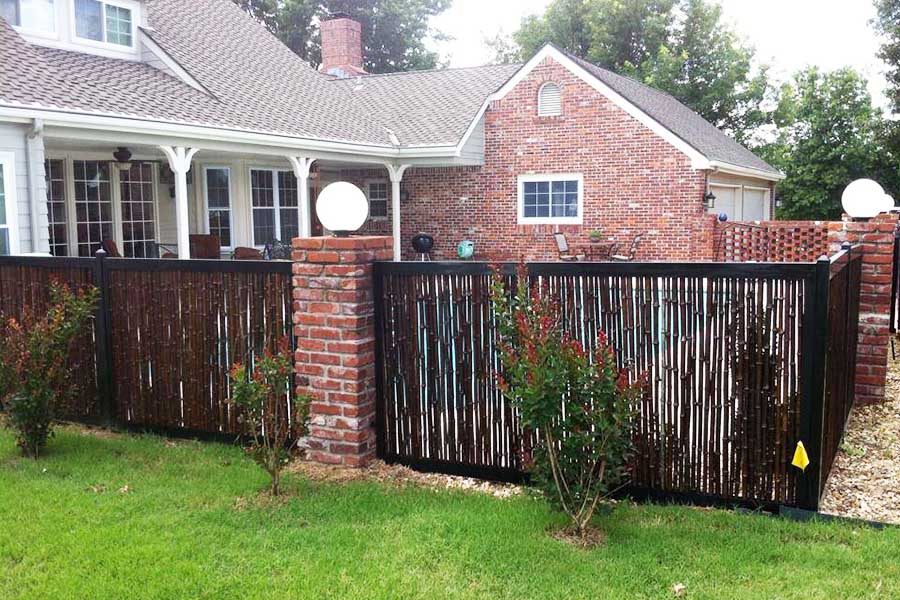All Categories
Featured

Selecting the best kind of fence for your residential or commercial property is a considerable choice that can affect both the appearances and performance of your space. Whether you're seeking privacy, safety, or merely an attractive function, there are numerous aspects to consider when selecting the excellent fencing. Below are some crucial factors to consider to help guide your decision-making procedure.
- Establish the Purpose of the Fencing. The initial step in choosing the right sort of fencing is to clarify its purpose. Various fences serve different features, and recognizing your certain requirements will assist limit your options. Take into consideration the following:
Privacy: If you're looking for personal privacy, a solid and high fencing such as timber or vinyl will prevent spying eyes from seeing right into your lawn. Security: For security functions, a solid, high fencing made of aluminum or steel can prevent intruders and give comfort. Visual Allure: An attractive fence made from wrought iron, light weight aluminum, or picket-style timber can add beauty and visual interest your property. Animal or Pet Containment: If you require to consist of pet dogs or animals, a sturdy fencing like chain link or timber may be needed to avoid them from running away. 2. Consider the Product. It's time to pick the material as soon as you have actually developed the fencing's key objective. Each sort of product features its own collection of advantages and challenges. Here are some usual products to take into consideration:
Timber: Wood fences are versatile and customizable, offering privacy and a traditional look. They're suitable for country buildings or traditional homes however call for regular maintenance to protect against pest, rot, or warping invasion. Vinyl: Plastic fences are low-maintenance, long lasting, and readily available in a range of designs. They will not fracture, warp, or discolor, making them an excellent option for those that want a durable, easy fence. Vinyl can be more costly upfront than timber. Light weight aluminum: Aluminum fences provide a streamlined, modern-day appearance and are resilient, rust-resistant, and need minimal maintenance. However, they typically do not supply as much personal privacy as timber or vinyl, as the slats are often spaced apart. Chain Link: Wire mesh fence are typically utilized for security or to have pets. They are durable and cost effective, but they do not supply much privacy or visual allure unless you add slats or personal privacy screens. 3. Consider the Climate and Upkeep Demands. Your area's climate can significantly influence the life-span and maintenance needs of your fence. If you stay in an area with high moisture or regular rainfall, products like wood may need additional treatment to avoid rot or mold growth. On the other hand, plastic and aluminum fences are resistant to the elements and need a lot less upkeep.
In addition, take into consideration the quantity of time and effort you're ready to dedicate to fence upkeep. Wood fences need routine discoloration or paint to keep their look, while vinyl and aluminum need far less maintenance.
- Consider Durability and Life-span. Take into consideration the length of time you desire your fence to last. , if you're looking for a fencing that will last for years with little maintenance, plastic and aluminum are excellent choices.. While timber fences can last 10-20 years with correct care, they might not endure the examination of time as well as various other materials.
Likewise, consider your budget. Materials like wood and chain web link have a tendency to be even more budget-friendly upfront, while vinyl and light weight aluminum often tend to find with a higher initial cost yet offer long-term durability.
- Suit the Fence to Your Residential Property Design. The kind of fence you select ought to match the general feel and look of your property. A well-chosen fencing can improve your home's curb appeal, while an inadequately selected fence can take away from it. :
Standard Residences: A classic wood picket fence or a wrought iron fencing works well with older, more standard homes. Modern Residences: For a modern appearance, streamlined products like aluminum or plastic can complement modern design. Country or Ranch Characteristics: A wood or wire fencing may be perfect for country homes or ranches, where functionality is just as crucial as aesthetics. 6. Check Regional Regulations and HOA Guidelines. Before making your decision, inspect your regional zoning policies and any kind of HOA (Homeowners Organization) standards to make certain that your wanted fencing follow height limitations, product demands, and other regional regulations. Some areas have certain regulations concerning the appearance of fences, specifically in household communities.

Conclusion. Picking the right fence for your residential or commercial property calls for mindful factor to consider of your needs, spending plan, and the style of your home. Whether you're prioritizing personal privacy, protection, or visual charm, there's a fence material and design that will suit your demands. By considering the factors described over, you can make an informed choice and choose a fencing that will enhance the functionality and appeal of your residential property for many years to come.
Latest Posts
Excellent Eats with a Coast Ambiance at Deauville Inn
Published Apr 19, 25
1 min read
Change Your Home with Quality Floor Covering Solutions
Published Apr 19, 25
1 min read
Enjoy Summer Season at The Docks
Published Apr 18, 25
1 min read